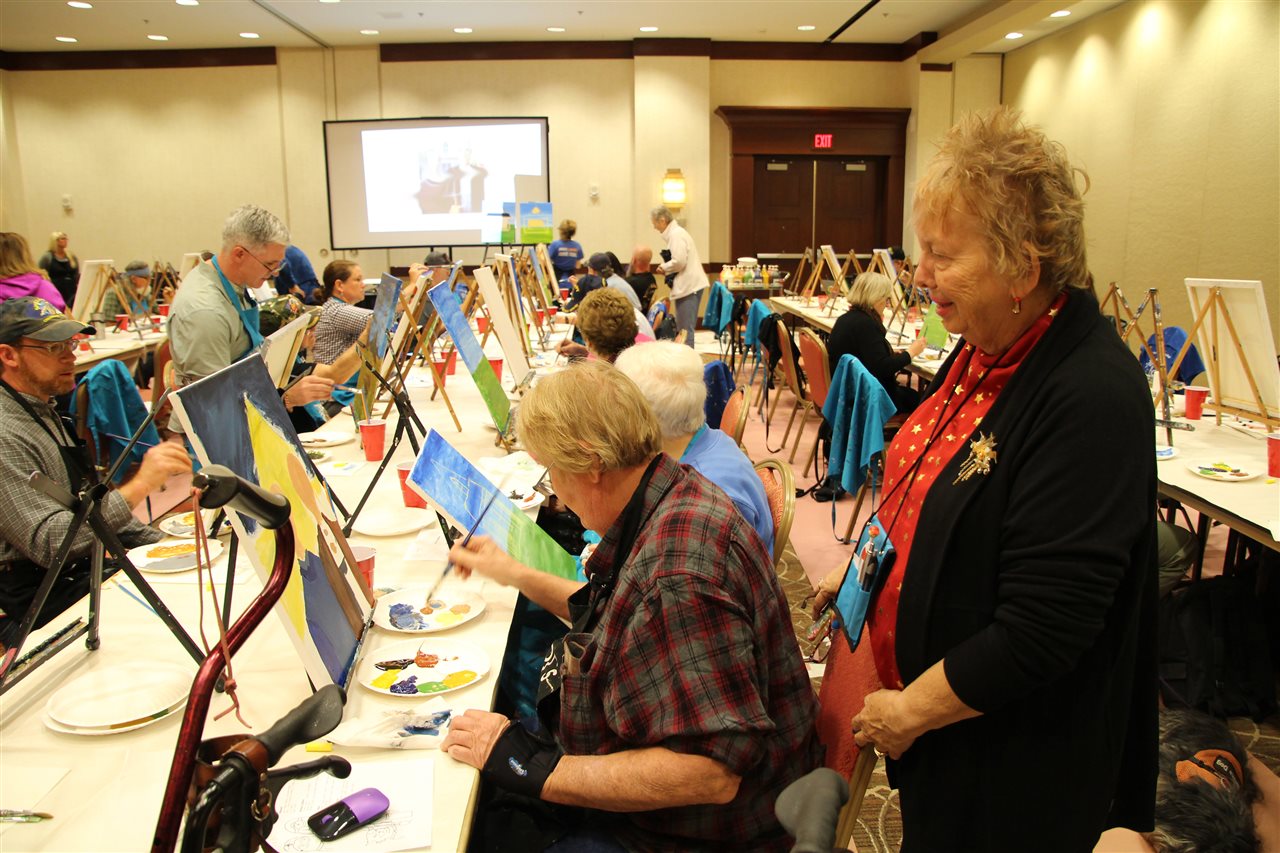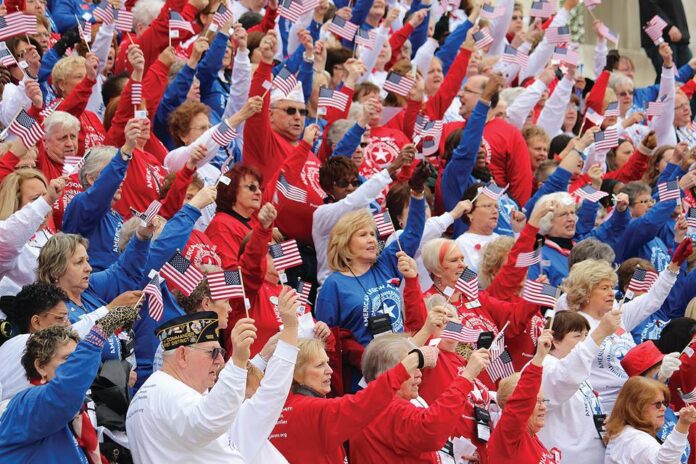“You’re sitting at home one night and get a phone call that your husband is being medevaced and he’s coming home. They said it was for spinal injuries,” recalled Mandy Spooneybarger, 36, caregiver to her husband, Charles, an Army veteran. “You have to live in your new normal.It’s stressful. It’s isolating. You have to let go of what you had. That is the hardest part. Sometimes it takes years. You can find strength from the person you are caring for. If you can, find other support.”
One place to find that support has been the American Legion Auxiliary (ALA), the world’s largest women’s patriotic service organization. The organization recently received a grant from the Elizabeth Dole Foundation’s Hidden Heroes Campaign for innovative and evidence-based programs that address the long-term needs of military caregivers, spouses, parents and loved ones caring for service members and veterans at home.
Veterans Depend on Caregivers
“The ALA recognizes that many veterans depend daily on their dedicated caregivers,” said Kathy Dungan, national president of the organization. “We recognize how important it is to support caregivers and address the unique stresses they face to help ensure our nation’s heroes are supported for years to come.”
At the National Veterans Creative Arts Festival (NVCAF) last fall, the grant helped the Auxiliary provide several opportunities to empower caregivers and provide social support. Respite bags were handed out to each caregiver at registration.Although the event is centered around veterans, the bags and warm welcomes from Auxiliary volunteers and staff made the caregivers feel special. Programs relevant to the needs of military caregivers are typically focused on the service member or veteran, and only incidentally related to the caregiver’s role. There are gaps in needed programs, which the grant helped to address. In addition, the funding provided the opportunity to build skills and confidence as caregivers.
 Caregivers Need Support Too
Caregivers Need Support Too
Dolores Kostiw, 71, caregiver to her husband, Steve, an Air Force veteran, said, “I retired two years ago. I’m around to help do what he needs to do, make sure he gets in and out of the shower OK. If he needs help with his shoes or dressing of any sort, I can try and help him with that. It’s very hard because he’s first – I have to make sure he’s OK and everything before I can take care of myself.”
According to a Rand Corp. study, there are more than 5.5 million military and veteran caregivers in the U.S. They spend many hours tending to the visible and invisible injuries or illnesses of their loved ones.In the study, 17 percent of civilian caregivers reported spending more than 40 hours per week providing care; 12 percent of post-9/11 military caregivers and 10 percent of pre-9/11 military caregivers spent more than 40 hours per week.
It’s OK not to be OK and ask for help. “Anger is a big thing. Address that as soon as you can,” said Spooneybarger. “Because that’s the biggest reason I see why people leave their spouses – unresolved anger. They take it out on the only safe place they know – the person holding their hand through the whole process.” For Kostiw, it’s about finding time for herself. “More than once, you think, I can’t do this anymore, I want to get out of it, but then he needs something, and I have to be there for him to give it to him,” she said. “Do what you can and if you can’t do it, ask for help.”
Through the educational program and social support opportunities that were offered at the NVCAF, Kostiw and others learned it was OK – and perhaps beneficial for all – to need and ask for help as a caregiver. They had the opportunity to show their emotions in a welcoming environment with others in similar situations. Some also offered suggestions on how to cope, based on their own experiences.
To learn more about how to get involved in the ongoing work of supporting caregivers and to give back to veterans, the military and their families, visit ALAforVeterans.org.
Feature image credit: American Legion Auxiliary National Headquarters (via Facebook)
(BPT)






